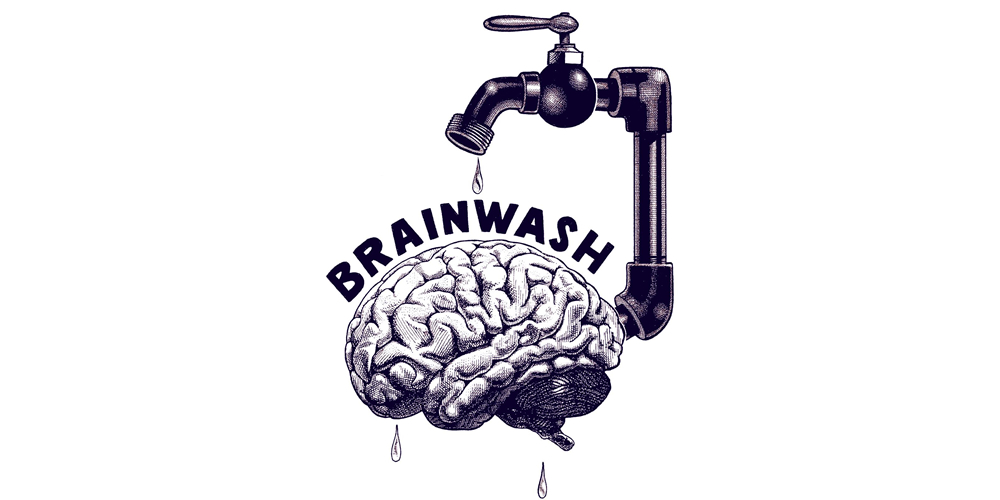10 Media Manipulation Techniques for Public Opinion
Brainwash = Mind Control
Noam Chomsky compiled a list of “10 Methods of Manipulation” used by mass media to influence public consciousness.
1. Distraction
The main element of social control is to distract people’s attention from important issues and decisions made by political and economic elites, by constantly saturating the information space with insignificant news. Distraction is crucial to prevent citizens from gaining important knowledge in fields like science, economics, psychology, neurobiology, and cybernetics.
“Constantly distract citizens from real social problems, shifting their attention to topics of no real importance. Make sure people are always busy and have no time to think; from the field to the pen, like all other animals.” (Quote from the book “Silent Weapons for Quiet Wars”)
2. Create Problems, Then Offer Solutions
This method is also known as “problem-reaction-solution.” A problem or “situation” is created to provoke a certain reaction from the public, so that people themselves demand measures that the ruling elite wants to implement. For example, allowing a spiral of violence in cities or organizing bloody terrorist attacks so that citizens demand stricter security laws and policies that infringe on civil liberties. Or, triggering an economic crisis to force acceptance of social rights violations and cutbacks in public services as a necessary evil.
3. Gradual Implementation
To get an unpopular measure accepted, it’s enough to introduce it gradually, day by day, year by year. This is how fundamentally new socio-economic conditions (neoliberalism) were imposed in the 1980s and 1990s: minimizing government functions, privatization, insecurity, instability, mass unemployment, and wages that no longer provide a decent living. If all this had happened at once, it would likely have led to revolution.
4. Deferred Execution
Another way to push through an unpopular decision is to present it as “painful and necessary,” and get citizens to agree to its implementation in the future. It’s much easier to accept sacrifices in the future than in the present. First, because it won’t happen immediately. Second, because people tend to nurture naive hopes that “tomorrow everything will be better” and that the sacrifices required of them can be avoided. This gives citizens more time to get used to the idea of change and to accept it when the time comes.
5. Treat the Public Like Children
Most propaganda aimed at the general public uses arguments, characters, words, and intonations as if addressing schoolchildren with developmental delays or intellectually challenged individuals. The more someone tries to mislead the audience, the more they use childish speech patterns. Why? “If someone addresses a person as if they are 12 years old or younger, then, due to suggestibility, the person’s response will likely lack critical evaluation, just like a child of that age.”
6. Focus on Emotions Over Reason
Emotional influence is a classic technique aimed at blocking people’s ability to rationally analyze, and ultimately, to think critically about what’s happening. On the other hand, using emotional factors opens the door to the subconscious, allowing the implantation of thoughts, desires, fears, anxieties, compulsions, or stable patterns of behavior.
7. Keep People Ignorant and Promote Mediocrity
Ensure that people are unable to understand the methods used to control and subjugate them. “The quality of education provided to the lower social classes should be as poor and mediocre as possible, so that the ignorance separating the lower classes from the upper classes remains at a level that the lower classes cannot overcome.”
8. Encourage Admiration of Mediocrity
Instill in the population the idea that it’s fashionable to be dumb, vulgar, and uneducated.
9. Reinforce Self-Blame
Make individuals believe that they alone are to blame for their misfortunes, which result from their lack of intelligence, abilities, or effort. As a result, instead of rebelling against the economic system, people engage in self-deprecation, blaming themselves for everything, which leads to a depressed state and, among other things, inaction. And without action, there can be no revolution!
10. Know More About People Than They Know About Themselves
Over the past 50 years, advances in science have created an ever-widening gap between the knowledge of ordinary people and the information possessed and used by the ruling classes. Thanks to biology, neurobiology, and applied psychology, the “system” has acquired advanced knowledge about humans, both physiologically and psychologically. The system has managed to learn more about the average person than the person knows about themselves. This means that, in most cases, the system has more power and control over people than they have over themselves.
About Noam Chomsky: Noam Chomsky is an American linguist, philosopher, public intellectual, author, and political analyst. He is a distinguished professor of linguistics at the Massachusetts Institute of Technology and one of the most prominent figures in 20th-century science. His foundational work in linguistics and cognitive science has earned him widespread recognition in academic and teaching communities.



